A number of things have conspired to raise once again the old chestnut of the reintroduction of National Service to the UK, nearly 60 years after its demise in the 1960s.
This article was submitted by Stuart Crawford, a regular officer in the Royal Tank Regiment for twenty years, retiring in the rank of Lieutenant Colonel in 1999. Crawford now works as a political, media, and defence and security consultant in Edinburgh and is a regular commentator and contributor on military and defence topics in online and other media, including the UK Defence Journal.
Not least of these has been the recent RUSI report Competitive National Service by Elisabeth Braw[1]. In her paper the author brings together a number of strands, including recent political initiatives, the shift in British Army recruiting targeting to focus on under 18 year olds, and the perception that young people might want to make a contribution to civic life by “doing something useful”, amongst other things.
Ms Braw’s RUSI paper received a lot of media coverage when it was published and more when the SNP Defence Spokesman, Stewart McDonald MP, mentioned aspects of it as a possible input to an independent Scotland’s national security posture. Almost inevitably this was quickly portrayed in the populist press as a return of National Service in an independent Scotland, and McDonald took to the pages of the Nationalist- leaning paper The National in an attempt to clear up the misunderstandings[2]. The New Statesman has also weighed in to support McDonald’s thoughts on the idea[3].
Covid-19 has added another dimension, with reports that up to 20% of 18 year old potential undergraduates are reputedly set to defer entry to university this year. But the classic gap year out is by no means certain in the light of continuing travel restrictions, which begs the question; what are all these young people going to do if finding themselves in Katmandu is no longer an option? Finally, we should recognise that the British armed services are still struggling to attract a sufficient number of recruits via the outsourced recruitment process, and that improved numbers through the recruiter’s door are yet to translate into sufficient numbers at the initial training establishments. The wastage rate is high.
And so some observers think that there just might be a place for some sort of scheme whereby young folk could contribute to national life. As the RUSI paper records in some detail, the Scandinavian countries have a tradition of having these in various different guises. There’s no point in going into a detailed analysis because Ms Braw has done it already, and better than I can, so let’s just take a couple of examples.
Denmark has a long history of conscription to its armed services which continues today. However, because numbers in the age cohort tend to be far in excess of the requirement, only approximately of eligible males are actually called up to serve. Only men are conscripted, but women can, and do, sign up voluntarily, constituting roughly 20% of all “conscripts”. Most serve their 4 months training in the armed services (12 months for those selected for particular regiments) but there is also an option to spend their time with the Danish Emergency Management Agency (DEMA). Conscripts here serve for nine months in the Agency’s regional centres and learn disaster-response techniques, and leave equipped to assist in future civil emergencies.
In Norway also a reduced system of conscription remains, with the needs of that armed services dictating that only about a third of the age cohort are called up. Interestingly, being “selected for conscription” carries big Kudos in that country and there is competition amongst young people there to be included, such are the perceived benefits in terms of future career prospects.
To quote Braw:
“The highly selective nature of Norway’s military service makes it very attractive among young Norwegians – indeed, somewhat paradoxically, the exclusivity rather than the actual duties appear to appeal to young Norwegians. Today military service is seen as exclusive and prestigious… it looks good on one’s CV. The only people the armed forces have to draft against their will are a small number with specialist skills, such as electricians.”
In other words, young Norwegians aspire to do military service because it is recognised by potential employers as a good thing to have done. Because it is selective, and the people taken are in the top of their age cohort, they are eminently employable post-service.
Might this Scandinavian model of quasi-conscription, mixing compulsory and voluntary service in either the armed forces or other civilian service, be applicable in the UK or, from McDonald’s point of view, Scotland when it becomes independent? Well, I think we do have to knock the idea of compulsory military service in the UK on the head for once and for all. Aside from the deranged mutterings of a handful of retired Bufton Tuftons in the Home Counties there appears to be little appetite in the military community for a return to National Service as was before.
The thought of being charged to take a bunch of scruffy, unwilling conscripts and turn them into something approaching competent soldiers, sailors and airmen/women is enough to make even the most hardened of Sergeant Majors blanch. The images of It Ain’t Half Hot, Mum and Dad’s Army cannot be unseen or unrecalled, and they still resonate with the post conscription generations.
On the other hand, we have armed forces that cannot meet their target numbers, lots of smart young folk who may not be able to, or wish to, follow any more the gap year paradigm of meaningless travel for travel’s sake and, for commendable reasons, might seek to contribute to their communities and/or – old fashioned ideal but not necessarily an antiquated one – their country, however they might identify that? Personally I was never one of the “Queen and Country” brigade whilst in uniform, but many of my closest friends were and none the worse in my estimation for being so. I like to think we were all equally committed to what we had signed up to do.
Is there scope for some sort of resilience organisation based on quasi conscription as floated by McDonald? If nothing else, the coronavirus pandemic has been a reality check, reminding us perhaps that societal resilience must play a vital role in both the UK’s national security strategy and in preparation for future such events. We were caught napping this time; it would be criminal if we were caught napping the next time.
A final point. Whilst I am firmly against the idea of compulsory military service in peacetime, I do think that basic military training might be a voluntary option available under the resilience service scheme. Part of the problem with recruitment to the armed services is that young people don’t know what they might be getting into these days, such is the disconnect between civilian population and the forces. It’s a leap in the dark that must put many off. With a taster some might find it to their liking and make a career of it, and the trainers would have the comfort of dealing with willing volunteers. It might also, thinking of Mr McDonald’s political position, go some way to answering the perennially boring question of how the armed forces of an independent Scotland might seek to fill their ranks.
I think it’s worth further consideration at the very least.
We have armed forces well below establishment, a cohort of youngsters stymied by Covid-19 and lack of employment opportunities, and a feeling, stimulated no doubt by the modern plague, that we might all be able to do better for one another. It might well be an idea whose time has come. And if you’re going to pile in and say it’s a ridiculous idea, please do read the references I have provided first. Thereafter I’m quite happy to be told I’m wrong.
[1] Competitive National Service: How the Scandinavian Model Can Be Adapted by the UK. By Elisabeth Braw. RUSI Occasional Paper, October 2019.
[2] https://www.thenational.scot/news/18437419.stewart-mcdonald-scotland-needs-permanent-resilience-group/
[3] https://www.newstatesman.com/politics/scotland/2020/05/national-service-resilience-scotland-army-coronavirus-sweden




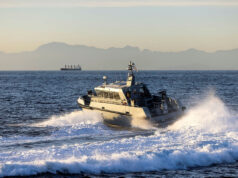
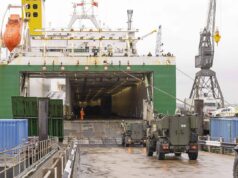

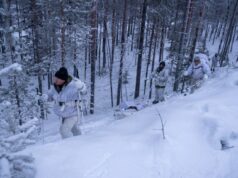
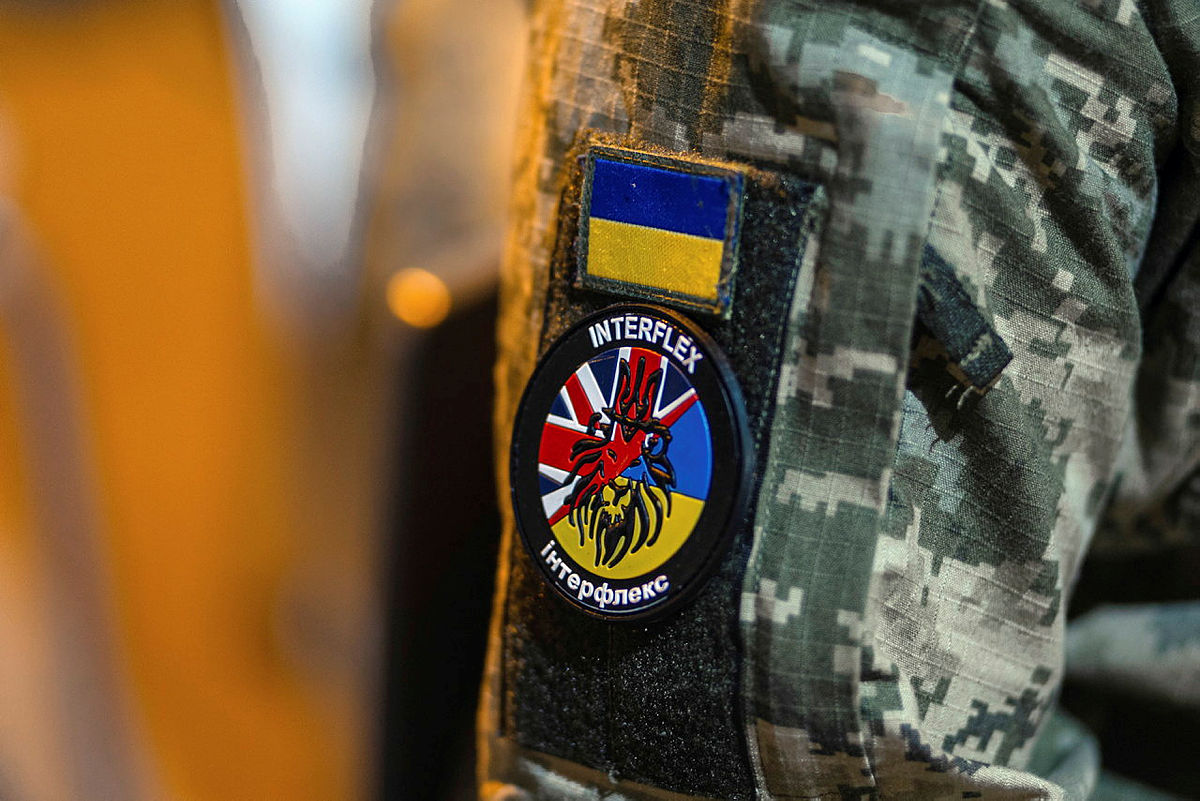
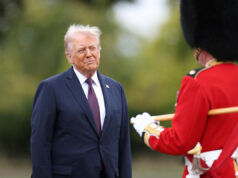
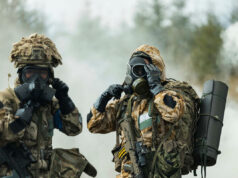
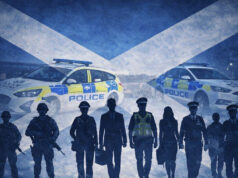

I think after this is all over it could be a great time to sort out the armed forces thousands are jobless and boosting the armed forces would boost indistry giving people more jobs
Honestly, I wish some form of National Service would come back, it would be great to finish my degree and get some experience.
Unfortunately, I have one of the more obscure eye conditions which prevents the military as a career for me but I would be more than happy to join up if they ever get round to reforming the guidelines.
Seems to be a recurring theme of the recruitment process. I tried joining the Royal Navy Reserve in October 2019 whilst I write my PhD. I was turned down over a steroid based asthma treatment I received when I was six years old, despite being over fifteen years asthma free.
Good luck with the rest of your studies!
Cheers! Congratulations on getting to PhD, that’s mega-commitment!
It’s such a shame how deadset the guidelines are at current. From chatting around on forums there’s plenty of people who would happily join but have a minor mitigating factor.
As a result of new trial surgery that I undertook privately, my eyesight is actually now better than the military standard with negligible probability of regression- I suspect in 10 years time when such treatment is more commonplace there may be a chance for others to serve and for me to join the Reserves at least.
I had 2 eye corrections for a squint in my right eye as a child and at best I could only ever read the top 3 letters on the eye chart, I could however read them all with my left eye. I can remember my medical at Woolwich on the completion of my basic training and the M.O. going ballistic wanting to know how I’d got in and threatening not to pass me fit for service, It might have been that I was a pretty decent shot with an SLR that saved me shooting left handed. Never had a problem till they brought that piece of crap in that you can only fire from the right shoulder I knew my time was up.
To be honest I don’t think the government are that desperate to recruit! They have paid of tens of thousands of military personnel Since 2010 to save money…the recruitment shortfall is entirely fixable if they really wanted too.
I had similar trying to join the army in 2012; childhood hip condition that they said was too likely to come back.
To be fair to them, I started to appeal the medical rejection and it did go bad, needing a replacement a few months later.
Wow! I can’t believe they turned you down for something that was so long ago. When I enlisted into the Marine Corps (I’m American) I of course had to give up my medical history, my peanut allergy came up and I was disqualified from service. I had to go to my federal senator and have him override it. I owe Lindsay Graham my career in the Marine Corps.
It seems the Army’s recruitment problems just won’t go away. Enough people are showing interest but by the time they’ve been selected and screened not enough seem to be suitable. Which begs the question, why are our young people so unfit? I really think that schools and colleges need to do daily PT sessions. It isn’t just a problem for the Army; we are saving up massive health issues in the general population which means ever more NHS spending. Somehow got to get these kids off their I Phones and on a bike!
Could it be that we are also better at finding problems that would otherwise never have been found and probably never caused an issue. Medical Science is impressive, but perhaps we are too clever and have not adapted our assessments of fitness to serve?
How are the fitness rules written? To use a totally made up example, is it along the lines of, “any heart condition” excludes someone from serving. We can detect imprefections today that we perhaps could not detect 30 years ago so someone who may have had a long and successful career in the military would today not get through the door. (Might be a bad example, sorry if it is.) Could a more nuanced approach help without actually lowering real standards?
Just a random thought.
Cheers CR
Good post. I bet half of the kids turned away are perfectly fit but have a ‘record.’ I know a few blokes who had childhood asthma but didn’t bother admitting it because they wanted to be soldiers, they got CS gassed with everyone else and were OK. The thing is soldiering is by nature dangerous.
It is the litigation society; the MOD are terrified of being sued.
It’s because they paid of so many why recruit so many again..
We do have an issue with health. But I’ve applied to join the army twice. as a joinur soldier and in the reserves. Both times i dropped out due to the time frame. It took me a year to get an interview the 1st time, and a month to receive the results from my basic medical questionnaire the 2nd. The process simply takes to long and better things come calling.
Sorry this is off on a tangent but it IS pertinent to UK security regarding the F35B and there’s nowhere else to post it.. It’s an overly rosy article by the Lexington Institute which is an industry think tank but it does list some very good points about the B model and and its effect on the power projection capabilities of the navies that fly it.
https://nationalinterest.org/blog/buzz/f-35b-guarantees-allied-naval-dominance-over-china-157446
Cheers!
Also:
https://www.defensenews.com/global/europe/2020/05/26/three-european-air-forces-approve-performance-benchmarks-for-next-gen-fighter-jet
I saw this article the other day too. The increase in 5th gen F35’s that can be deployed to sea across allied nations is a point lost on most commentators. The QE class with F35 really will be a world beating capability, even in relatively small number.
Agreed. I don’t believe many consider how a stronger European carrier capability may also enable the US to adopt a more asymmetric approach to their carrier force, with a heavier weight on Pacific basing and deployments than has been the norm.
Something else that I haven’t seen discussed is operational resilience/persistence of an F35B naval platform. In future, with increasing potential for carriers to sustain damage in a peer confrontation, an F35B can be both launched and recovered, albeit probably with compromised capabilities, in circumstances where similar damage to a flight deck, propulsion or steerage might prevent such operations from a CATOBAR carrier.
Another interesting concept, turning airlifters into standoff munitions trucks. Easily done and would really complicate things for an enemy… The UK could have a considerable strike force using its airlifters in this role…
https://www.defensenews.com/air/2020/05/27/air-force-looking-to-up-gun-its-airlift-planes
Cheers
I see the good old wooden pallet is no longer a wooden pallet – it’s a ‘Combat Expendable Platform’. Trust the military to use three words when two will suffice.
You do make a very valid point and one that is best reflected by the Ford class. The Ford’s four catapults are run off the same power bus and are not independently fed. So if one gets damaged or breaks down, to isolate it from the power bus, all four are required to be isolated from the power bus. Bit of a major design flaw and will cause problems in the future unless its redesigned. Compare that with the QE class, granted a ramp take-off still limits the max all up weight the F35B can take off with. But it can still take off with either a low fuel load and a full weapons load or a balanced load of fuel and weapons.
The current EMALS implementation does seem to be a constraint but it may not be the greatest vulnerability. The recovery of any CATOBAR carrier is a broader issue, if either the deck is damaged where the planes have to land and/or the arresting system is damaged. For the last 75 years, carriers and particularly those operated by the USN have been largely immune to such damage due to layered defence in depth from air attack. That may now be starting to change with advances in both missiles and likely developments in LEO satellite surveillance by adversaries, adding to existing surveillance assets.
If a VTOL carrier does take damage, then the utility of the F35B goes even further since in a pinch it may be possible to land and takeoff vertically from any flat part of the deck, providing there are still operational F35B to do so. Clearly a deck not prepared for the thermal stresses of an F35B may rapidly degrade, but this would be an in extremis operating scenario. If the ramp, or deck alongside it, are still viable then a rolling takeoff would be upside.
Thanks for this, an interesting read! Everyone is in emergency mode when it comes to the number of hulls that China is putting into the water, and the sheer number of escorts is a concern. But it is certainly worth considering the capabilities of the vessels, and not many articles do that.
national service in my eyes for the modern day snowflakes is no no,not because i think they should all be wrapped up in cotton wool by there mothers,but for the very fact being ex infantry and being on the front when it,s been hot with rounds cracking and thumping around me,i want someone behind or next to me i can trust and rely on,not someone who has been made to be there,who is sat curled up in a ball crying for mammy or turns tail and legs it,i am not saying all of them would be like that,but i would bet there would be quite a lot
Not in favour of military national service either (civil national service is another matter). However, I must point out that British & Commonwealth conscripts did pretty well in WW2, Korea & Vietnam. I think this generation, yes after a lot of PT, would do OK too.
Rob, i’m with you on some kind of ‘Civic Service’ I’m at a lose as to how to implement it or for it to be of much use. I’m maybe being a bit unfair but a lot of the kids who would be doing it maybe wouldn’t take to it though, I daresay there would be a lot of ‘crap jobs’ involved, its not going to be all having a shot of driving a RHIB etc and there would have to be a level of discipline and dare I say it, living in a ‘base’ away from mumsy. If you have an unruly bunch of 18 year olds who are ‘demanding’ to go home how would we as a society deal with it. You probably wouldn’t have these kids long enough to teach them much of any real value, at least at a community level. On a personal level, First Aid would be great (I can’t believe its not a regular part of the school curriculum) and certainly phys would no doubt help individuals but realistically you’re not going to teach them how to drive a tractor etc.
I suppose if it was for a couple years you could do a lot more with it although it would obviously cost more and could maybe work on a voluntary level. Give them something that really would look good on a CV.
Its interesting the Norse model where its seen as a good thing but I fear that this might be one of those examples of different cultures having different issues.
when i joined in 1989 as a junior leader day 1 week 1 there were 187 of us.On the morning of day 2,,33 were stood outside bags packed going home back to mammy,44 weeks later come pass out my platoon had been dissolved and put into the last 2 remaining plattoons of C company some 75 of us passed out the rest had gone,only 7 were medical reasons,the rest they could not handle it,but training then was a lot tougher than now,back then you screwed up you got a dig but it was forgotten about you just learnt not to do it again,you can,t do that now as it,s assault,but today’s youths it,s all mental health,they all have some sort of problem,the obese side is easy to remedy but mental health my god it,s why the country is a mess now,especially when they say kids aged 5 have mental health issue,s
I wasn’t really intending it to be a ‘It wasn’t like that in my day’ although I totally get where you’re coming from. Society is sooooo different and I’m a bit astonished how much its changed to be honest but that’s life.
I am onside with you on this. As a baby tiff I joined HMS Fisgard in Torpoint along with some 350 other apprentices. After 4 weeks basic that number was down to 280. After the first year it was down to around 120 tiffs spread out between Marine, Air and Weapons. At the end of the nearly 5 years apprentiship the final number was probably down to 80 a cross all branches.
That kind of recruiting was no longer sustainable and as a result they disbanded the Artificer Corp something that they have regretted ever since. We did have Direct Entry Tiffs who joined from Civvy firms and where fast tracked through but they where few and far between.
There is no easy solution.
I’d do something like this: Introduce a national service scheme and give everyone the chance to volunteer for 2 years to either:
1. The NHS.
2. Environmental task force.
3. Social Care.
4. Construction task force.
5. Yes, the military.
6. British overseas aid (for the bright ones).
7. And even do a longer term (5 years?) as a part time community care assistant (default position for the ones who won’t do 1 to 6).
1 to 6 could be made fun; lots of young ones living socially and working together. I’d also give them all regular adventure training along the line of the Duke of Edinburgh’s award silver & gold. Outside of the military this could be done through Scouts, Guides or just a nationalised adventure scheme.
Group 7 would just do a day or so a week, do someone’s shopping, have a coffee with the old or even walk a dog – but you wouldn’t get the pluses of the other groups.
I’d also link ‘National Service’ with university or apprenticeship ‘credits’ so that it would pay to be taking these gap years.
Let’s be honest, most people squander several years between 18 & 25 getting drunk, getting laid and having fun. So why not facilitate this and get them to do something useful at the same time?
Never, ever happen though…
Not sure drinking heavily and laying pipe is ‘squandering’ your time’, I was (and am) quite fond of it. 😉
A lot of good ideas though, the DoE type stuff especially. I can see a ‘gap’ for those who don’t want to go straight to further education and some sort of government scheme that provides a structure to both enhance their personal knowledge and do something ‘useful’ could be a good idea, basically a ‘college’ for kids who can’t be arsed to go to college. I’m not sure how it could work though, if they’re not getting paid as much as their pals who are working in Tesco then there would have to be something to ‘hook them in’. We seem to be at a weird stage in society where kids are very aware of being adults and wanting the rights of this while continuing to stay in education. There was even a look at not jailing under 25’s for their lack of maturity.
https://www.bbc.co.uk/news/uk-scotland-51657466
We live in a weird situation where if kids go on to further education they get special treatment compared to those who don’t. In Scotland there are no university fees, in England there are loans, if a kid wants to be a driving instructor or diver etc they need to fund it themselves, there’s definitely scope to say ‘do your ‘Civic Service’ and you will get X amount to put towards the courses you want to do. Guess it will all come down to cost, especially now that we’re running up a mahoosive debt that will need paid.
When ww1 broke out and kitcheners army was formed. Many of the old souls, where discussded by the recruits. Many felt them to be pampered and weak. However, 6 months later they would be the same British soldiers fighting and dieing in Europe. I’m happy to critics my generation, but don’t be to fast to completely disregard us. Our lives haven’t exactly been easy going all the way.
I hear you Harry, there are still some good young guys about, as a generalisation (and in my experience) a lot of young adults want the perks of being a ‘grown up’ while avoiding the responsibilities. That’s always gone on of course, I was guilty of it too but something is different in society now, at least for a lot of people. A lot of ‘Young adults’ (I hate that expression its patronising but I can’t think of another one as I’m talking 18-25+ year olds) have so many more options and less pressures to knuckle down. Indulgent parents is part of it and the trend to move away from ‘winners and losers’ meaning we’re all ‘winners’ has lead to quite a self centred generation. All in my view of course, and for the record, I generally cringe at the ‘its not like it was in my day’ stuff so no axe to grind on that front.
Good luck in whatever direction life takes you.
Back in the 1980’s I was involved with a project which involved business people ,politicians, professionals and so on meeting up at their school with fifth and, mostly, sixth former’s I was one of the speakers and panellists. National service was raised . I said that I was an advocate of some form of service for young people, post O or A level but with a difference.
What I envisaged was “conscription” for ten months in a gap year ( time for a holiday too ) which would involve basic training including all the goodies like hygiene, fitness, survival and so on but also cooking, first aid simple self defence etc
Afterwards there was a show of hands of those for and against and overwhelmingly, probably something like six to one, the youngsters present decided it was something they would like to be part of. Pretty good I thought.
I,m sure that there are umpteen other thing that could be included these days but I’m sure that there is still a place for the idea.
The Army cadet forces, as well as the Air and Navy cadet forces, give youngsters a flavour of what military life is like, so that hopefully they are inspired to join our armed services.
An interesting article, but it doesn’t think the problem through enough for me. The idea of reintroducing it in peace time, even in the present, permanent state of enduring conflict which we face for at least two-three generations, is to me frankly stupid, politically, militarily and economically. However, there are two points that I will like to make, first of all, the current crisis in unemployment is a golden opportunity for ALL the Uniformed Services to not only increase their rates of recruitment and to increase in size. By the way, when I mean Uniformed Services, I also mean the NHS, the Police and the other emergency services as well as the armed forces. In fact I would go further to expand the concept of Uniformed Services to include both the Corporate and Voluntary sectors, be it Supermarket Workers, Security Guards and Charity workers such as St John’s Ambulance, RNLI and RSPCA. Secondly, considering the enduring threats that this country now faces, or rather in many cases the traditional threats to these Islands, be it non-state actors such as terrorist and Organised Crime Groups, rogue states such as Russia, Iran and China or threats from Nature such as flooding, earthquakes and asteroids, we must now encourage and train the general population to prepared to be ready, to be resilient and to act responsibly when the next emergency situation occurs, no matter how minor it is.
Do you really want to give your local drug dealer military training?
‘Part of the problem with recruitment to the armed services is that young people don’t know what they might be getting into these days, such is the disconnect between civilian population and the forces. It’s a leap in the dark that must put many off. With a taster some might find it to their liking and make a career of it, and the trainers would have the comfort of dealing with willing volunteers.‘
The fact that this idea has not been brought forward before now shows how dim the recruitment johnnies are. They lack creative thinking.
Having almost blown my own head off and almost drowned due to my stupidity and cowardice in the cadets (RAF, yes, I was a crab), I spent some years feeling I should join up and being utterly terrified of the idea. If you wish to take a moment to tell me how much of a gutless snowflake I am for not joining up*, go ahead.
That said, I spent alot of time studying maritime history, and I have wanted to do something for my country without coming across as a Fantasy Fleeter. I am due to put some material on WW1 and the Royal Navy on the Royal Commission’s Uboat Project website (some stuff I’ve already done: https://uboatproject.wales/wrecks/h5/ https://uboatproject.wales/wrecks/penshurst/ ). I can only hope there is room for civvy maritime historians to do something that helps the armed forces. On the other hand, there might be there might be no redemption for fantasy fleeter comments I’ve made, or my cadet cowardice. I live in hope that producing material on the RN is of some use to my country.
*I had some serious issues of emotional immaturity, unsure if military service would have worked them out. If they hadn’t been worked out, I might have been a liability.
The majority of the youth today aren’t prepared for military service and most would wash out in the first week or 2 of bootcamp. They are more interested in taking selfies and watching cat videos on Youtube. Today’s conscript armies are not the way to go. Just look at Israel and all the problems they’ve had when their conscripts fight like calling mom when under fire, refusing to follow orders, ect. These things are all too common in conscript armies. Keep the British Army professional.
Agree with keeping the British army professional. But there was plenty of barely 18 and 19 year olds fighting and dieing in Afghanistan. Not to mention back in ww1 many of the old souls where disappointed by the quality if the new recruits who felt they weren’t suitable or capable of military service.
I am surprised and somewhat saddened by the fact that modern Britain is unable to fill the ranks of its small Regular Army nor even the Reservists out of a population of 60 million plus! The main problem must lie with the Recruiting system. It is ridiculous to hear that for example the Army rejects potential recruits for inter alia, a history of infantile asthma!! I suffered from this up until the age of about five but never had any long term effects and was able as an adult to take part in marathon sports and quasi-military activities. The Nordic model sounds like a good starting point. Also I can understand how many Regulars can be somewhat dismissive of conscripts or Reservists, but in South Africa of old for example, conscription in the sixties consisted of a 3 month basic training period followed by 6 months of full service. Even this short period produced some fine soldiers.
The recruitment process does seem to have a negative impact. Going back a few years now but a mate who left the Navy went to join the RNR,he was knocked back because of his weight. The guy was a big strong boy, late 20’s and had done about 8 years but because he didn’t meet the height weight chart he was told he was too heavy. He tossed it off and took up wild swimming and got his kicks that way.
I was always towards the top end of the height/weight chart myself, even at a ‘buff’ 13 and a half stone of mostly muscle. That was until I wasn’t as I’d crossed the line as it were.
This is another area that doesn’t seem to have shifted with the times, I think the height/weight charts were set when the country was still on rations.
Hi Andy. Agree with what you say. Any ex Regular should be welcomed into the Reservists even if he is no longer a buff 189 pound muscleman! But seriously, the skills acquired from Regular service must be of huge value to the Armed Forces. Not all personnel are needed for front line service. Our Natal Parks Board Unit of Honourary Officers was composed mainly of ex Rangers, Servicemen and women and former Police officers. Despite thickened waistlines and grey hair we still gave valuable backup to the front line Regulars
Hi Geoff, in my mate’s case he wasn’t really that fat, he really was a big strong fellah, he’d done a lot of weights over the years.
I agree that you don’t hand back the mindset when you hand back the respirator when you leave and there is a pool of talent that should be encouraged to join the reserve forces. Personally it wasn’t for me but I had a great time in the reserves between my two stints ‘full time’. By the age of 45 I’d had enough, others might well see it differently though.
All good Andy!
Also, on a lighter note, the animosity that existed then between English and Afrikaans “Troopies”,much of it lighthearted produced some interesting nicknames. The English referred to Afrikaans soldiers as Rock Spiders but the”Dutchmen”(another pejorative tag) called the English by a more inventive insult- “Soutpeels”(Salt pricks)-one leg in England,one in South Africa, and the middle one in the sea!!
I do think a form of National Service would be good for the country, for a number of reasons. I don’t believe National Service should just be limited to the Armed Forces though. I believe it should be widened to include the Coast Guard, Border Agency, Fire Service, Medical Services, Local Council etc. Basically a form of community service but linked with a apprentice scheme, so I would be looking at a minimum of 3 years service. By linking an apprenticeship with national service, not only does someone get a full time job, but they actually get something at the end of it, new skills and a recognised academic reward. The Country would then get positions filled in jobs that normally wouldn’t attract the youth, people with a usable skill set that can be called back in crisis. It may even be worth setting up reservist schemes for those that have done their terms of service, to maintain a level of resilience when the cack hits the fan.
Excellent suggestions Davey. Again using the old South African example, conscripts were also offered Police service as an alternative and from memory conscientious objectors could take on non-combatant roles.
As I recall the old West German model of National Service offered military service or service in the German NHS…
I don’t see it as a way to go for the UK. What’s needed is to make military service an attractive career path, with good wages and living facilities..
We need a top flight professional armed forces….
Agree with you last sentence but also think their is need for a good second tier of Reservists and a modest form of conscription
I would back a limited form of national service for two main reasons: militarily, we have a pretty small pool of regular and volunteer reserves and conscription would create a big pool of trained personnel who could be called up if needed; and I think the teens and twenties would benefit a lot from doing their bit for the nation in the military, the NHS, the uniformed services etc.
The younger generation may be a bit more spoiled and bolshy than our lot, but they are not lacking in what’s needed, national service would give them some directional and training.
For the military, I’d cap the number of conscripts at 10% of regular numbers, as that’s about the max the services could train. An infantry platoon of 33 could easily accommodate one conscript per 8-man section.
10% would allow national service to pick the brightest, fittest and most suitable youths and would without doubt become a badge of honour for those selected to serve.
However, while the military could handle conscription and do it well, I doubt that civilian bodies like the NHS would fare so well: an army of trainee hospital porters, cleaners and dishwashers would not go down great with either the conscripts or the unions!
Well said.
Having almost blown my own head off and almost drowned due to my stupidity and cowardice in the cadets (RAF, yes, I was a crab), I spent some years feeling I should join up and being utterly terrified of the idea. If you wish to take a moment to tell me how much of a gutless snowflake I am for not joining up*, go ahead.
That said, I spent alot of time studying maritime history, and I have wanted to do something for my country without coming across as a Fantasy Fleeter. I am due to put some material on WW1 and the Royal Navy on the Royal Commission’s Uboat Project website (some stuff I’ve already done: https://uboatproject.wales/wrecks/h5/ https://uboatproject.wales/wrecks/penshurst/ ). I can only hope there is room for civvy maritime historians to do something that helps the armed forces. On the other hand, there might be there might be no redemption for fantasy fleeter comments I’ve made, or my cadet cowardice. I live in hope that producing material on the RN is of some use to my country.
*I had some serious issues of emotional immaturity, unsure if military service would have worked them out. If they hadn’t been worked out, I might have been a liability.